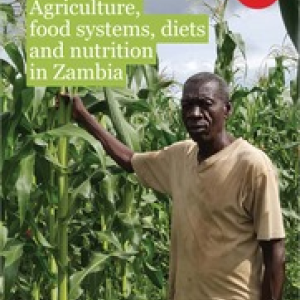
This policy brief by the NGOs IIED and Hivos describes how diversification of agriculture and food systems in Zambia can contribute to improving Zambian food and nutrition security, while also building more resilient food systems. It outlines policy recommendations on how the food and agriculture sector can better serve the country’s population through the development of sustainable diets for all.
The brief discusses the dependence on maize in Zambian agriculture and how this crop makes up a major part of Zambian diets, while nutrient-rich foods such as legumes, animal-source foods, fruit and vegetables are eaten in small quantities, particularly amongst the poorest families. Maize production does little to help alleviate the food insecurity and malnutrition as a result of poor diets in the country.
In an effort to tackle the lack of diversity in diets, the IIED and Hivos have together initiated the Zambia Food Change Lab which aims to better understand specific issues in the Zambian food system, build coalitions of stakeholders, generate ideas for change, and test these innovations on the ground. In a blog-post accompanying the brief there is a more detailed description of the Food Lab and its work.
The policy brief is available to download here.







Post a new comment »